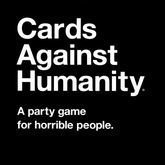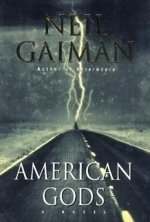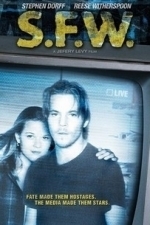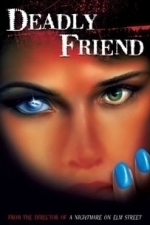Search
Search results
Pumpka (57 KP) rated Cards Against Humanity in Tabletop Games
Aug 15, 2019
Humour (2 more)
player count is high
a game specifically tailored to party people
creativity is limited (2 more)
often a popularity contest
multiple plays decreases the enjoyment of play
Here comes an unpopular opinion - hear me out
now - don't get me wrong, my first time playing Card against Humanity was hilarious! I loved it, I was in. The concept is very simple, you're presented with a silly, funny or rude situation and you have to fill in the blanks using the inappropriate cards from your hand to make the others laugh.
NOW
On MANY plays later, I see the flaw in this design. I've realised this is more of an activity than a game as such. Again, don't go pointing fingers too fast, I did enjoy the game at the start remember? Now, theres an AI built into the game called 'Rando' he can play too for various reasons and he can often win. As suggested, random cards are drawn, and because it usually doesn't make sense, its funny, and therefore wins! This made me realise that I'm not funny. Damn, I've been caught in this web of lies cards against humanity had me caught in. I have very limited choice and often my choices are a result of a card "dump" where really nothing was funny nor fit. A well thought out game might have a mechanic that allows me to do something else with these cards that maybe I don't see use for. So I'm not the one being funny, the predisposed topics and cards are just used as a shock factor -
which promptly brings me to my next point, these things and statements are often funny because you're shocked! THAT is in a card game, woaaah I'm such an adult, wow. No. sadly this may be funny the first time but there's only so many times I can see the "chunks of a dead hooker" card before it looses it's humorous effect. I've played with all of the expansions (which were available before I quit on this game) which was a fair few, and even then it wasn't enough.
The buzz was gone, and I no longer enjoy this game, I've not grown out of it, I'm not a humour buzzkill. There are many other similar style games that provide ample creativity. Now before one of you thinks it, yes, there are blank cards to write on, but it's often not enough to change and sustain the games core.
One more thing before I sign off on this one, it's often a popularity contest. I'm not the most popular in our gaming group, there are certainly people who will favour others and thats normal and fine. BUT when games like this swing around and the winner is essentially cast on a vote of the other players choosing. The winner can often be the same person again, and again and again. Because them putting cards down that were drawn out of a stack randomly and they had no input into the outcome of what those cards says was totally hilarious. They win again.
To summerise, creativity is so limited, it's not YOU being funny, it's the cards. It's not really that re-playable and it's often a popularity contest,
there are many other games of this genre that do it better.
NOW
On MANY plays later, I see the flaw in this design. I've realised this is more of an activity than a game as such. Again, don't go pointing fingers too fast, I did enjoy the game at the start remember? Now, theres an AI built into the game called 'Rando' he can play too for various reasons and he can often win. As suggested, random cards are drawn, and because it usually doesn't make sense, its funny, and therefore wins! This made me realise that I'm not funny. Damn, I've been caught in this web of lies cards against humanity had me caught in. I have very limited choice and often my choices are a result of a card "dump" where really nothing was funny nor fit. A well thought out game might have a mechanic that allows me to do something else with these cards that maybe I don't see use for. So I'm not the one being funny, the predisposed topics and cards are just used as a shock factor -
which promptly brings me to my next point, these things and statements are often funny because you're shocked! THAT is in a card game, woaaah I'm such an adult, wow. No. sadly this may be funny the first time but there's only so many times I can see the "chunks of a dead hooker" card before it looses it's humorous effect. I've played with all of the expansions (which were available before I quit on this game) which was a fair few, and even then it wasn't enough.
The buzz was gone, and I no longer enjoy this game, I've not grown out of it, I'm not a humour buzzkill. There are many other similar style games that provide ample creativity. Now before one of you thinks it, yes, there are blank cards to write on, but it's often not enough to change and sustain the games core.
One more thing before I sign off on this one, it's often a popularity contest. I'm not the most popular in our gaming group, there are certainly people who will favour others and thats normal and fine. BUT when games like this swing around and the winner is essentially cast on a vote of the other players choosing. The winner can often be the same person again, and again and again. Because them putting cards down that were drawn out of a stack randomly and they had no input into the outcome of what those cards says was totally hilarious. They win again.
To summerise, creativity is so limited, it's not YOU being funny, it's the cards. It's not really that re-playable and it's often a popularity contest,
there are many other games of this genre that do it better.

Comix Zone Classic
Games, Entertainment and Stickers
App
Enter the Comix Zone, in SEGA's classic arcade-style beat 'em up, now available on mobile for the...
Kristy H (1252 KP) rated Into the Water in Books
Jan 10, 2018
No big surprises (1 more)
Confusing POV
Not a bad book, but not a great one either
When the police show up at her door, Jules Abbott knows it isn't good news, but she isn't expecting this. Her older sister, Nel is dead--drowned in the lake known as the Drowning Pool back in their hometown. Jules has always vowed to never return to that place, but she finds herself back: in her childhood home, where Nel lived with her fifteen-year-old daughter, Lena. The assumption is that Nel committed suicide in the Pool, but Jules knows that isn't possible. Even though she hasn't seen her sister for years, she is convinced her water-loving sibling would never willingly die in the water. Meanwhile, Jules discovers that Nel was looking into other local residents who died at the Drowning Pool over the years for a book she was writing. What exactly happened to them--and Nel?
It's never easy to follow up a blockbuster like The Girl on the Train - I cannot even imagine the pressure. I didn't adore that book, but I do remember that I basically read it in one sitting. That wasn't the case with INTO THE WATER, though in its defense, I read it during an extremely busy period with work, where I basically collapsed in bed each night to read a few chapters.
This is not a bad book, but it wasn't a great one, either. It's not one that will stay with me. For one thing, much of its plot is predicated around one of my most reviled literary pet peeves: ridiculous miscommunication. You know, that whole thing where if the characters would just talk to each other, as normal folks do, for about 5 minutes, we wouldn't have to go through any of this? Yes. That. So that irritated me to no end.
There are also a lot of points of view in this book. It's not necessarily a bad thing, but it certainly took a while to keep everyone straight. I was glad I was reading this as an actual book, so I could flip back and see whom I'd been reading about earlier. Slogging through those early portions of many characters slowed things down for me and made it harder to get into the story.
As I said, it's not a bad book. I enjoyed reading it. The storyline is fairly interesting, overall, and it held my attention, even when I was pretty tired. I had a pretty decent suspicion of "whodunnit" fairly early on and turned out to be correct, but about halfway through, I was still second-guessing myself and pretty captivated. Nel, Jules, and Lena are intriguing characters, if not fairly frustrating in their lack of ability to talk to one another.
Still, overall, I was left feeling a little deflated by this one. There was no big "gasp" moment for me (perhaps because I had a decent inkling what had happened early on?) like GIRL. It was just a fairly good thriller that kept me entertained for a few days.
It's never easy to follow up a blockbuster like The Girl on the Train - I cannot even imagine the pressure. I didn't adore that book, but I do remember that I basically read it in one sitting. That wasn't the case with INTO THE WATER, though in its defense, I read it during an extremely busy period with work, where I basically collapsed in bed each night to read a few chapters.
This is not a bad book, but it wasn't a great one, either. It's not one that will stay with me. For one thing, much of its plot is predicated around one of my most reviled literary pet peeves: ridiculous miscommunication. You know, that whole thing where if the characters would just talk to each other, as normal folks do, for about 5 minutes, we wouldn't have to go through any of this? Yes. That. So that irritated me to no end.
There are also a lot of points of view in this book. It's not necessarily a bad thing, but it certainly took a while to keep everyone straight. I was glad I was reading this as an actual book, so I could flip back and see whom I'd been reading about earlier. Slogging through those early portions of many characters slowed things down for me and made it harder to get into the story.
As I said, it's not a bad book. I enjoyed reading it. The storyline is fairly interesting, overall, and it held my attention, even when I was pretty tired. I had a pretty decent suspicion of "whodunnit" fairly early on and turned out to be correct, but about halfway through, I was still second-guessing myself and pretty captivated. Nel, Jules, and Lena are intriguing characters, if not fairly frustrating in their lack of ability to talk to one another.
Still, overall, I was left feeling a little deflated by this one. There was no big "gasp" moment for me (perhaps because I had a decent inkling what had happened early on?) like GIRL. It was just a fairly good thriller that kept me entertained for a few days.
Rachel King (13 KP) rated American Gods in Books
Feb 11, 2019
I have only ever read one other adult book ( I don't count Coraline) by Gaiman, which was vastly different from this book in both style and mood - Stardust. A friend recommended I read this book many years ago since I like mythology. I found this book really had not much to do with mythology in the classic sense. Instead the characters that were pulled from mythology, such as Odin, Anansi, Horus, Bast, and Ganesha, among others, behaved like has-been D-list celebrities that struggle to survive in a country that is repeatedly described as "...a bad land for gods." The powers they rarely put on display were minimal and amounted to the same kind of "magic" as a skilled pick-pocket, con-artist, or amateur magician. The few times any real power is observed is once during the sexual scene of a re-invented Queen of Sheba (I'll spare you the R-rated details) and when the gods travel "behind the scenes," a state of existence that only the gods can enter.
While the names of classical mythology fit into the category of the Old Gods, there are New Gods that have taken root in America, born from cultural obsessions that have evolved and devolved over the years, such as railroads - a man dressed as a railroad conductor, television - a voice talking through Lucille Ball on a rerun of I Love Lucy, vehicles - stocky men that seemed to resemble vehicles themselves, and internet - a short, nerdy, nervous kid, among other American fixations and stereotypes.
In addition, one of the scenic devices used throughout the plot is what Gaiman's characters describe as places of power - side-of-the-road dives that road-trippers visit for no apparent reason, such as a place boasting the largest doll collection in America or the biggest wheel of cheese. And no, Disneyworld is not one of them.
One of the things I found interesting about this Gaiman-born world is that the Old Gods only exist in the New World when regular people travel from other countries and bring their memories and practices with them, even when they don't intend to stay themselves. The gods are "born" from these average people, and even though they can be killed by others, they don't die otherwise, but instead alternately starve or thrive based on the behavior of the people who live and die in the New World. They all have counterpart manifestations of themselves in the countries they are pulled from, but one's existence does not affect the other - though they do seem to be aware of each other.
All of this is merely the background of the main plot, which centers around the activities and travels of a seemingly mortal man with a single name, Shadow. I never did "get" the one-name thing, but whatever. Through Shadow's narration, the reader learns of an impending storm - a battle between the Old Gods and New Gods, the former fighting for survival and the latter fighting for dominance. Shadow works for a mysterious "Mr. Wednesday" and is randomly haunted by his dead wife, Laura, but otherwise seems to have little drive of his own for most of the book. In fitting irony, he has his own brand of "magic" - an obsession for coin tricks to pass the time from his days spent in prison - which I could never really follow the descriptions of.
To be completely honest, I truly did enjoy this book, though I am struggling to say exactly why. Perhaps I was fascinated by the "shadowy" way that Gaiman told the story, or how he developed this over-the-hill world of gods and goddesses that better resembled America's middle and poor classes' struggles for survival, money, and influence. Some of the personal touches that Shadow's character added to the plot made him at times surprisingly endearing. In addition, the way that Shadow seemed to address the reader at the very end of the book was so satisfying that I laughed out loud and had to read it again several times. Something about that just brought the book to life for me and help me to fully appreciate the versatile style of Gaiman. This is one of those books you don't have to fully understand to fully appreciate.
While the names of classical mythology fit into the category of the Old Gods, there are New Gods that have taken root in America, born from cultural obsessions that have evolved and devolved over the years, such as railroads - a man dressed as a railroad conductor, television - a voice talking through Lucille Ball on a rerun of I Love Lucy, vehicles - stocky men that seemed to resemble vehicles themselves, and internet - a short, nerdy, nervous kid, among other American fixations and stereotypes.
In addition, one of the scenic devices used throughout the plot is what Gaiman's characters describe as places of power - side-of-the-road dives that road-trippers visit for no apparent reason, such as a place boasting the largest doll collection in America or the biggest wheel of cheese. And no, Disneyworld is not one of them.
One of the things I found interesting about this Gaiman-born world is that the Old Gods only exist in the New World when regular people travel from other countries and bring their memories and practices with them, even when they don't intend to stay themselves. The gods are "born" from these average people, and even though they can be killed by others, they don't die otherwise, but instead alternately starve or thrive based on the behavior of the people who live and die in the New World. They all have counterpart manifestations of themselves in the countries they are pulled from, but one's existence does not affect the other - though they do seem to be aware of each other.
All of this is merely the background of the main plot, which centers around the activities and travels of a seemingly mortal man with a single name, Shadow. I never did "get" the one-name thing, but whatever. Through Shadow's narration, the reader learns of an impending storm - a battle between the Old Gods and New Gods, the former fighting for survival and the latter fighting for dominance. Shadow works for a mysterious "Mr. Wednesday" and is randomly haunted by his dead wife, Laura, but otherwise seems to have little drive of his own for most of the book. In fitting irony, he has his own brand of "magic" - an obsession for coin tricks to pass the time from his days spent in prison - which I could never really follow the descriptions of.
To be completely honest, I truly did enjoy this book, though I am struggling to say exactly why. Perhaps I was fascinated by the "shadowy" way that Gaiman told the story, or how he developed this over-the-hill world of gods and goddesses that better resembled America's middle and poor classes' struggles for survival, money, and influence. Some of the personal touches that Shadow's character added to the plot made him at times surprisingly endearing. In addition, the way that Shadow seemed to address the reader at the very end of the book was so satisfying that I laughed out loud and had to read it again several times. Something about that just brought the book to life for me and help me to fully appreciate the versatile style of Gaiman. This is one of those books you don't have to fully understand to fully appreciate.
Tim McGuire (301 KP) rated S.F.W. (1994) in Movies
Jan 7, 2020
374. S.F.W. One of my fave movie of the 90s. I recently noticed that it was based on a novel. Read it, rewatched movie, and it was still dope... One day Cliff Spab and his best friend since birth Joe Dice head into a convenience store for smokes and beer. Unluckily for them this was also the day that a terrorist organization called Split Image decide to take the place over, and everyone that happened to be in the store as hostages. The masked men are also filming them the entire time, pretty much keeping track of them losing their minds, after all, they've only been eating junk food and beer for the past month. Obvi they make it out after putting up a fight when they've reached the end of their ropes. However, only two make it out alive, Cliff, who everyone calls Spab and a upper class young woman, Wendy. The tale starts at the end of the hostage crisis. Upon escape, Spab and Wendy realize they are now celebrities, every night on TV, millions watched the events unfold in the store. Cliff puts on a brave smart ass attitude making the public love him more, but inside he's suffering some ptsd, and he just wants to disappear. His family use him for the fame, his friends use him for the fame. His one true friend is dead. And the only one he can share any of this with is Wendy, and they are being kept apart by fame, family and all of that. Movie gives you a look at our news becoming just pure entertainment, based on money and popularity. And this was before the internet. Stephen Dorff as Spab and Reese Witherspoon as Wendy were awesome in this dark comedy, with a freaking kick ass soundtrack! Check it out! Filmbufftim on FB.
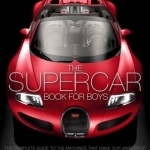
The Supercar Book for Boys: The Complete Guide to the Machines That Make Our Jaws Drop
Book
Fully illustrated throughout, The Supercar Book for Boys is a sumptuously designed guide full of...
Matthew Krueger (10051 KP) rated Deadly Friend (1986) in Movies
Sep 14, 2020
Death By Basktetball
Deadly Friend- is a good movie. The best sence is the basketball kill. It was gory, horrorfying and terrorfying. Other than that this film is basically Frankenstien but instead of a monster its a robot. Which does turn into a monster.
The plot: Its plot follows a teenage computer prodigy who implants a robot's hardrive into the brain of his teenage neighbor after she is pronounced brain dead; the experiment proves successful, but she swiftly begins a killing spree in their neighborhood.
Originally, the film was a sci-fi thriller without any graphic scenes, with a bigger focus on plot and character development and a dark love story centering around the two main characters, which were not typical aspects of Craven's previous films. After Craven's original cut was shown to a test audience by Warner Bros., the audience criticized the lack of graphic, bloody violence and gore that Craven's other films included. Warner Bros. executive vice president Mark Canton and the film's producers then demanded script re-writes and re-shoots, which included filming gorier death scenes and nightmare sequences, similar to the ones from Craven's previous film, A Nightmare on Elm Street. Due to studio imposed re-shoots and re-editing, the film was drastically altered in post-production, losing much of the original plot and more scenes between characters, while other scenes, including more grisly deaths and a new ending, were added. This version was criticized by test audiences for containing too much graphic, bloody violence and gore.
In April 2014, an online petition for the release of the original cut was made.
Its a intresting movie see it for yourself and see if you like it.
The plot: Its plot follows a teenage computer prodigy who implants a robot's hardrive into the brain of his teenage neighbor after she is pronounced brain dead; the experiment proves successful, but she swiftly begins a killing spree in their neighborhood.
Originally, the film was a sci-fi thriller without any graphic scenes, with a bigger focus on plot and character development and a dark love story centering around the two main characters, which were not typical aspects of Craven's previous films. After Craven's original cut was shown to a test audience by Warner Bros., the audience criticized the lack of graphic, bloody violence and gore that Craven's other films included. Warner Bros. executive vice president Mark Canton and the film's producers then demanded script re-writes and re-shoots, which included filming gorier death scenes and nightmare sequences, similar to the ones from Craven's previous film, A Nightmare on Elm Street. Due to studio imposed re-shoots and re-editing, the film was drastically altered in post-production, losing much of the original plot and more scenes between characters, while other scenes, including more grisly deaths and a new ending, were added. This version was criticized by test audiences for containing too much graphic, bloody violence and gore.
In April 2014, an online petition for the release of the original cut was made.
Its a intresting movie see it for yourself and see if you like it.
Lyndsey Gollogly (2893 KP) rated Pale Immortal (Land of the Dead 1) in Books
Oct 24, 2023
157 of 235
Kindle
Pale Immortal ( Land of the Dead 1)
By Anne Frasier
⭐️⭐️⭐️
The legend:
A hundred years ago, in what is now called Old Tuonela, a killer known as the Pale Immortal walked the streets. When darkness fell children were rushed inside, doors and windows locked up tight. Some claimed the Pale Immortal bathed in blood, and that blood flooded the streets until the ground became saturated.
Even after the Pale Immortal's reign of terror ended, people were afraid. His death had come too late.
Many claimed the ground was cursed, and so a mass exodus took place. Every single person relocated to a new development five miles from the old one. A better location, they claimed. And prettier. On a bluff overlooking the river. Why had anyone settled at the old place, in such a dark valley?
Let's pretend Old Tuonela doesn't exist. Let's pretend we always lived here, in the new place.
Even though a hundred years has passed, many locals still like to pretend Old Tuonela isn't just beyond the outskirts of town where the softly rolling hills end abruptly, the valleys become dark and deep, and the roads turn back on themselves.
Look closely through the trees and you might see it on the other side of the Tuonela River.
This was different and kept me thinking all the way through about whether it was supernatural or not and if I’m perfectly honest I’m still not sure. The premise is really interesting and I a little confusing in the middle. But overall a really decent read. I do know I need to visit this place though it’s definitely drawn me in.
Kindle
Pale Immortal ( Land of the Dead 1)
By Anne Frasier
⭐️⭐️⭐️
The legend:
A hundred years ago, in what is now called Old Tuonela, a killer known as the Pale Immortal walked the streets. When darkness fell children were rushed inside, doors and windows locked up tight. Some claimed the Pale Immortal bathed in blood, and that blood flooded the streets until the ground became saturated.
Even after the Pale Immortal's reign of terror ended, people were afraid. His death had come too late.
Many claimed the ground was cursed, and so a mass exodus took place. Every single person relocated to a new development five miles from the old one. A better location, they claimed. And prettier. On a bluff overlooking the river. Why had anyone settled at the old place, in such a dark valley?
Let's pretend Old Tuonela doesn't exist. Let's pretend we always lived here, in the new place.
Even though a hundred years has passed, many locals still like to pretend Old Tuonela isn't just beyond the outskirts of town where the softly rolling hills end abruptly, the valleys become dark and deep, and the roads turn back on themselves.
Look closely through the trees and you might see it on the other side of the Tuonela River.
This was different and kept me thinking all the way through about whether it was supernatural or not and if I’m perfectly honest I’m still not sure. The premise is really interesting and I a little confusing in the middle. But overall a really decent read. I do know I need to visit this place though it’s definitely drawn me in.
Kristy H (1252 KP) rated Broken Harbor in Books
Feb 13, 2018
The fourth book in French's excellent Dublin Murder Squad series picks up with [b:Faithful Place|7093952|Faithful Place (Dublin Murder Squad, #3)|Tana French|https://d.gr-assets.com/books/1291165900s/7093952.jpg|7350661]'s Mick Kennedy. Scorcher, as he's known, is a by-the-book cop famous for his diligence, attitude, and solve rate. However, he's still trying to make amends for one case, so he's given this one - a family found in an estate in the Irish suburbs. Father Patrick and the two children are dead, while mother/wife Jenny is in critical condition at the hospital. At first, Scorcher and his rookie partner, Richie, think the case is open and shut. But they quickly discover things aren't what they seem--with the Spains themselves or the murder case. Why are there holes all over the family's home, and baby monitors and cameras everywhere? Who erased the family's computer? Why did Jenny pull their young son out of preschool? Scorcher finds himself on a case that will test his resolve and the morals he holds so dearly.
This was an superb book; I don't know how French does it, but her novels never disappoint. It's a bit slow going, but amazingly interesting. Her painstaking detail of a crime scene and murder investigation is thorough and somehow beautiful; she knows her stuff. The first person detail with Mick is a welcome relief, honestly, after the "varying POV" chapters that seem to be the method du jour lately (I know the book is a few years old, but still). Mick is a crazily complex character and hearing his innermost thoughts just adds to his depth.
I won't lie: the book is long and it's probably not for everyone. You need to be a mystery fan and not be thrown off by a main character who talks and shares a lot. There's a dynamic between Mick and his new partner that adds to this detail and character development. Further, Mick and his family have a tie to Broken Harbor (the site of the murder), which involves some flashbacks. Again, it adds length, but also to the depth of his character. Plus, the plot kept me guessing, which I really appreciated. It would have been an easy 4.5 star rating, but it dived a little with the ending and a move that seemed a bit out of character for Mick, but still - an excellent mystery with a detailed and thoughtful plot. I'm glad I've picked up French's series again and look forward to getting completely caught up.
This was an superb book; I don't know how French does it, but her novels never disappoint. It's a bit slow going, but amazingly interesting. Her painstaking detail of a crime scene and murder investigation is thorough and somehow beautiful; she knows her stuff. The first person detail with Mick is a welcome relief, honestly, after the "varying POV" chapters that seem to be the method du jour lately (I know the book is a few years old, but still). Mick is a crazily complex character and hearing his innermost thoughts just adds to his depth.
I won't lie: the book is long and it's probably not for everyone. You need to be a mystery fan and not be thrown off by a main character who talks and shares a lot. There's a dynamic between Mick and his new partner that adds to this detail and character development. Further, Mick and his family have a tie to Broken Harbor (the site of the murder), which involves some flashbacks. Again, it adds length, but also to the depth of his character. Plus, the plot kept me guessing, which I really appreciated. It would have been an easy 4.5 star rating, but it dived a little with the ending and a move that seemed a bit out of character for Mick, but still - an excellent mystery with a detailed and thoughtful plot. I'm glad I've picked up French's series again and look forward to getting completely caught up.
